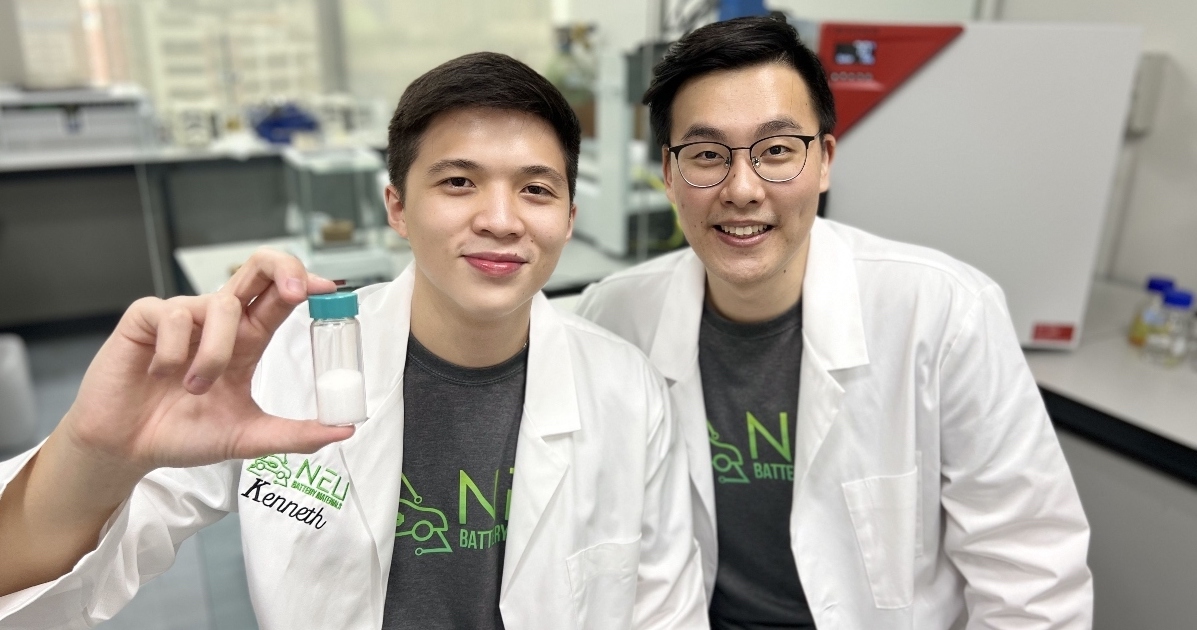The present is all about working towards a sustainable world and Singapore is not backing down on its efforts.
With the rollout of multiple initiatives under the Singapore Green Plan 2030, the journey to sustainability could slowly become our reality. Singapore’s electric vehicle (EV) push is one of the key efforts, with a goal to phase out petrol and diesel vehicles by 2040.
With the global EV market on a consistent growth trajectory, 2019 saw an estimated 500,000 tonnes of battery waste. Potentially by 2040, two-thirds of all car sales are expected to be electric, in turn generating 1,300 gigawatt-hours of waste batteries according to the International Energy Agency.
The rise in electric cars has driven up the worry of rising piles of discarded batteries in our landfills. Out of the excessive amount of EV batteries utilised, only five per cent of said lithium-ion rechargeable batteries are recycled globally.
However, disposing lithium is problematic — it involves multiple purification stages, and presently, it’s cheaper to mine more lithium than recycle it.
This is where Singapore-based startup NEU Battery Materials aims to change the game with its unique approach to battery recycling. The end goal for co-founders Bryan Oh and Kenneth Palmer is to keep lithium supply in circulation with the added benefit of low environmental impact.
Innovating for a cause
Bryan majored in Finance and Management at the National University of Singapore (NUS), and his experienced crosses various sectors: consulting, construction, and he even runs a few of his own startups.
It’s through one of his former business ventures — building portable lockers for ad-hoc events, which could be freely deployed — that he met Kenneth.
While Covid-19 continued to put a damper on the events sector, both Bryan and Kenneth learnt about NUS’ program, GRIP MAKE, where alumnus could commercialise technologies within the university.

Understanding the importance of lithium batteries and the potential impact on the environment that recycling could create, both of them wanted to develop battery recycling technology.
“Kenneth spent most of his time in the lab and spearheaded the development of our technology, while I spent my time on commercialising and fundraising, in hopes [that] we could contribute to the decarbonisation of the transport industry,” said Bryan.
Collectively with their inventor — now co-founder and technical advisor — Associate Professor Wang Qing, Deputy Head, Department of Materials Science and Engineering within the NUS College of Design and Engineering, they developed NEU Battery Materials’ electrochemical process.
Less chemicals, same recycling concept
What makes NEU’s process a trailblazer in the EV recycling sector?
Lithium batteries — such as those in EVs or energy storage — come in many battery types. These include Lithium Ion Phosphate (LFP), a type of battery increasingly used by Tesla and other major EV makers, or Nickel Manganese Cobalt (NMC). Commonly at their End of Life (EoL), such batteries would be thrown out with a landfill being their final resting place.
Through NEU’s recycling process, lithium from these batteries can now be extracted and recycled. We use an electrochemical method — using electricity — to recycle these batteries. By doing so, we’re able to produce battery-grade lithium that can be supplied back to manufacturers, thus allowing us to close the loop.
– Bryan Oh, co-founder of NEU Battery Materials

Traditionally, Pyrometallurgy and Hydrometallurgy would be the recycling methods of choice. However, said methods utilise acids and smelting which contribute to the atmospheric carbon in the long run.
In contrast, NEU’s electrochemical process separates the batteries into ion phosphate and lithium hydroxide at a recovery rate of more than 95 per cent, and purity levels of about 99 per cent for both materials.
NEU’s process taps on a regenerative solution, allowing more batteries to be recycled without the need to dispose of chemicals. In turn, NEU benefits from cost savings and low amounts of pollution when recycling.
In addition, the process runs modular and is space-efficient, which allows them to rapidly expand to meet the supply of batteries.
Sustainability is an all-in process
NEU is still in the early stages of its research, as it seeks to factor in recycling of other battery types and more provision of raw material sources.
To cater to market demand, it emphasises on Research & Development (R&D) to ensure that the company constantly supports the industry by providing sustainable and clean recycling solutions.
Bryan also stressed that sustainability is not a one-person effort; rather, it’s a holistic conscious joint effort to protect our environment.
The sustainable future is one to be encouraged. We have to acknowledge that many key players must play their part to ensure an attainable sustainable future.
It’s a cumulative effort between consumers, producers, and stakeholders in the value chain. We need to support one another [and] be open to exploring methods to reduce our carbon footprint by walking or cycling instead of taking private transportation, trying to prolong the lifespan of our electronics or even properly disposing of them at designated recycling bins.
– Bryan Oh, co-founder of NEU Battery Materials
Currently, the NEU team is looking to scale up the process from a lab setting into a larger-scale setting, while still maintaining its high performance of recycling. As such, they’re in the process of building NEU’s first pilot plant in Singapore before scaling up to build a commercial plant.
“The pilot plant will operate at 150 tonnes of waste batteries per year. We’re partnering up with one of our seed investors, Se-cure Waste Management, which specialises in the processing and recycling of electronic scrap and waste (e-waste),” shares Bryan.
The team also hopes to put NEU in every key region — such as China and Europe — to drive the forefront of battery sustainability through EoL management solutions. The goal is, with every EV placed on the road globally, NEU will be able to provide a closed loop recycling solution.
Feature Image Credit: NEU Battery Materials








